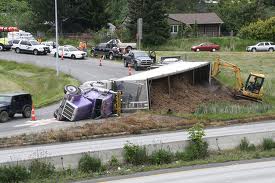In 2006, large commercial trucks were involved in nearly 17,000 accidents in Texas. Due to the tremendous weight and force of big rig trucks, the fatality rate in those accidents far exceeded the fatality rate in accidents involving only passenger vehicles. Trucking companies across Texas are abiding to new regulations in hopes to prevent more accidents.
“These regulations only apply to property carriers and commercial motor vehicle drivers. Passenger carriers and their drivers will continue operating under the pre-2003 rules while fatigue issues specific to the passenger carrier industry are assessed.”(Federal Motor Carrier Safety Administration (FMCSA))
To see all regulations and read more about Hours-of-Service policies please go to The U.S. Department of Transportation – Federal Motor Carrier Safety Admininstration
SIMPLY stated the new rule means:
• Drivers may drive up to 11 hours in the 14-hour on-duty window after they come on duty following 10 or more consecutive hours off duty.
• The 14-hour on-duty window may not be extended with off-duty time for meal and fuel stops, etc.
• The prohibition on driving after being on duty 60 hours in 7 consecutive days, or 70 hours in 8 consecutive days, remains the same, but drivers can “restart” the 7/8 day period anytime a driver has 34 consecutive hours off duty.
• CMV drivers using the sleeper berth provision must take at least 8 consecutive hours in the sleeper berth, plus 2 consecutive hours either in the sleeper berth, off duty, or any combination of the two.
Short-Haul Provision
Drivers of property-carrying CMVs which do not require a Commercial Driver’s License for operation and who operate within a 150 air-mile radius of their normal work reporting location:
• May drive a maximum of 11 hours after coming on duty following 10 or more consecutive hours off duty.
• Are not required to keep records-of-duty status (RODS).
• May not drive after the 14th hour after coming on duty 5 days a week or after the 16th hour after coming on duty 2 days a week.
• Employer must:
• Maintain and retain accurate time records for a period of 6 months showing the time the duty period began, ended, and total hours on duty each day in place of RODS.
Drivers who use the above-described Short-haul provision are not eligible to use 100 Air-mile provision 395.1(e) or the current 16-hour exception in 395.1 (o).
“In developing these hours-of-service regulations, the Federal Motor Carrier Safety Administration (FMCSA) systematically and extensively researched both United States and international health and fatigue studies and consulted with Federal safety and health experts. Our roads are better designed, constructed, and maintained in a nationwide network to provide greater mobility, accessibility, and safety for all highway users. Vehicles have been dramatically improved in terms of design, construction, safety, comfort, efficiency, emissions, technology, and ergonomics. These factors, combined with years of driver fatigue and sleep disorder research, led to a revision of the hours-of-service regulations for drivers.” (FMCSA)
Large truck cases present complex issues, and often require an expert to review the circumstances of the accident. To litigate successfully against a truck driver or trucking company, the plaintiff must prove that the driver or company acted negligently. That is, you must show that the driver or company failed to exercise reasonable care:
• the truck driver was impaired by fatigue, drugs, or alcohol;
• the truck driver or the trucking company failed to maintain the truck in a safe operating condition;
• the truck driver or trucking company violated federal trucking safety rules or regulations
• the truck driver or the trucking company overloaded or improperly loaded the truck
• the truck driver operated the truck in an unsafe manner.
We can never be too careful on the road. If you or someone you know have ever been in an accident and suspected something was wrong, the best thing you can do is ask for legal advice and learn about your options are. At Borchardt Law Firm, we wish no family has to ever experience a tragic accident. However, when accidents happen our firm has successfully represented families who have been victims of drivers not following regulations. We hope that the work we do will protect future generations of Texans. Feel free to give us a call.
Toll Free: 866.832.9300
Phone: 817.332.9300
Fax: 817.332.9301
firm@attorneysmb.com
Burnett Building
801 Cherry St #1005
Fort Worth, Texas 76102
 Fort Worth Injury Lawyer Blog
Fort Worth Injury Lawyer Blog


